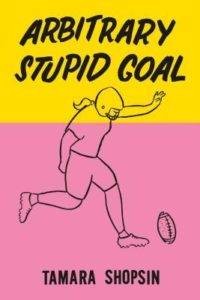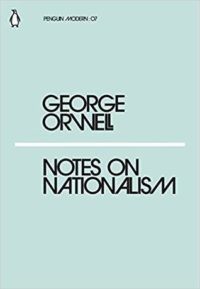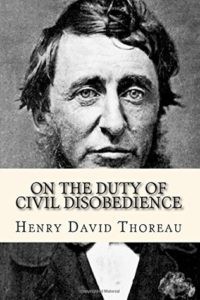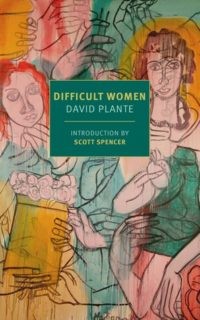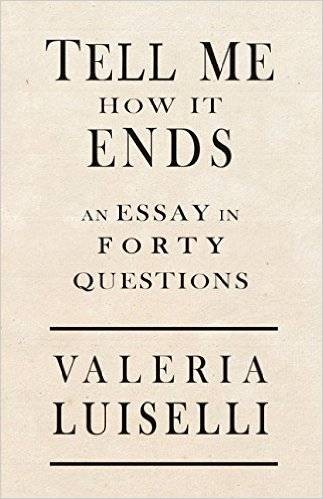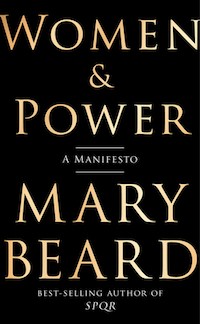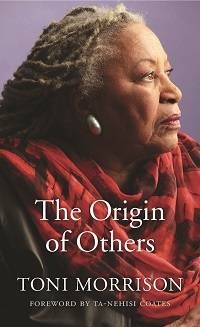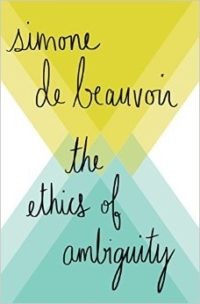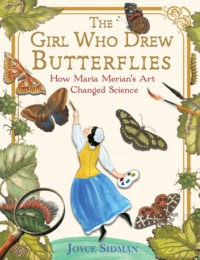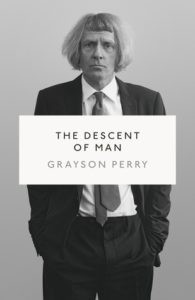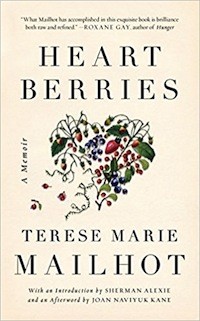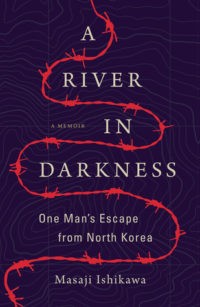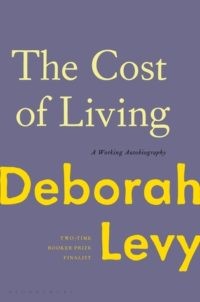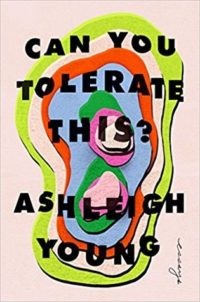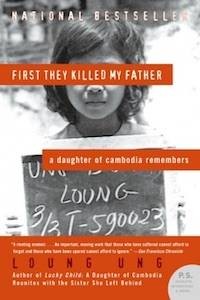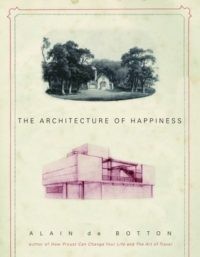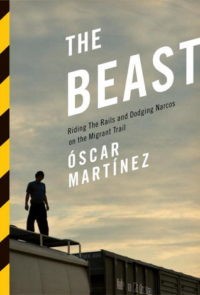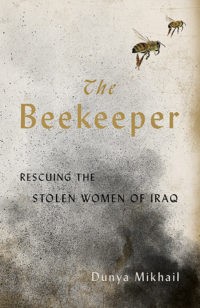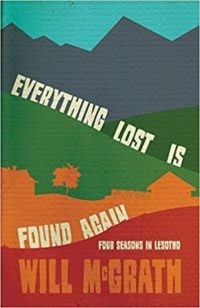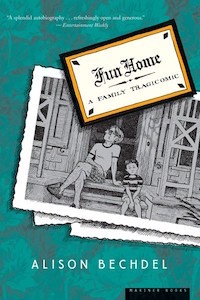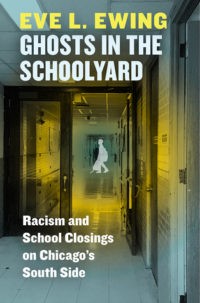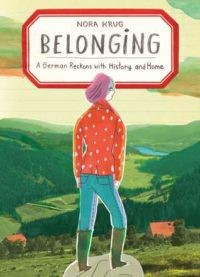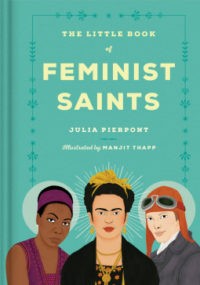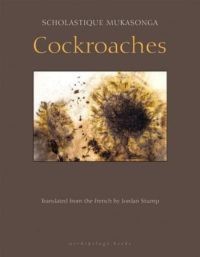While J. R. R. Tolkien’s warning to avoid boredom might be tongue-in-cheek, it’s also a reminder that even the most engaging nonfiction can quickly become overwhelming if not presented in a concise manner. Case in point: Doris Kearns Goodwin’s Team of Rivals, an exemplary work of historical analysis that clocks in at a whopping 916 pages. While I wholeheartedly recommend this book, its sheer size is sure to intimidate even the most ardent nonfiction enthusiasts.
That’s why having a diverse collection of short nonfiction books on your reading list can be such a blessing. These bite-sized volumes are designed to deliver their insights and ideas in a digestible format, sans the physical strain that comes with devouring lengthy texts. With a focus on brevity and concision, these books can be devoured in a single sitting, leaving readers feeling satisfied rather than fatigued.
In fact, many of the most impactful nonfiction works I’ve encountered are surprisingly compact – most under 300 pages, with some even shorter. What’s more, graphic memoirs and other forms of visual storytelling offer an equally engaging alternative to traditional prose, capable of conveying complex ideas and emotions in a fraction of the space required by longer, more verbose texts. Ultimately, nonfiction doesn’t have to be lengthy to make a lasting impression.
By embracing concise, well-structured writing, even the most weighty topics can be made accessible and enjoyable for readers.
Short Nonfiction Books Under 100 pages
Notes on Nationalism by George Orwell (52 pages)
In this passage, George Orwell delves into the concept of nationalism, contending that it leads individuals to overlook rational thinking and become increasingly oblivious to verifiable facts. His concern for the social fabric of Europe, and indeed the world at large, stems from a growing prevalence of nationalistic sentiment in numerous countries.
Letters to a Young Poet by Rainer Maria Rilke (80 pages)
In a surprising turn of events, an ambitious student at a prestigious military academy took a chance and sent some of his original poetry to none other than renowned Austrian poet, Rainer Maria Rilke. The esteemed author, known for his profound work, responded with a series of insightful letters that would later become a treasure trove of understanding the underlying ideas behind many of his iconic poems.
On the Duty of Civil Disobedience by Henry David Thoreau (48 pages)
In his seminal work ‘Civil Disobedience’, Henry David Thoreau posits that individuals should not permit their governments to supersede their moral compass. He asserts that it is a citizen’s obligation to resist allowing their passive consent to enable the government to perpetuate injustice, effectively making them complicit in wrongdoings.
While Thoreau was specifically motivated by his outrage towards slavery and the Mexican-American War, the core principles he articulates remain remarkably relevant today, offering valuable insights for contemporary society.
Lifeboat No. 8: An Untold Tale of Love, Loss, and Surviving the Titanic by Elizabeth Kaye (70 pages)
As a century has passed since the ill-fated voyage, a fascinating, previously untold tale emerges from the shadows. Renowned historian Elizabeth Kaye sheds light on the remarkable story of one of the earliest lifeboats to depart the stricken vessel.
We Should All Be Feminists by Chimamanda Ngozi Adichie (53 pages)
In her characteristic blend of wit and wisdom, Adichie redefines what it means to be a feminist in the 21st century. Gone are the rigid definitions; instead, she invites readers to reimagine feminism as an inclusive force that prioritizes empathy and understanding.
The Art of War by Sun Tzu (72 pages)
In ancient China, 2500 years ago, Sun Tzu penned his timeless masterpiece, ‘The Art of War’, drawing from the country’s rich military heritage. As military strategies evolved over time, so did the book’s influence, as leaders from various sectors – politics, business, and everyday life – incorporated its teachings to gain a competitive edge. This revered classic remains an indispensable tool for outmaneuvering opponents in both the corporate world and the battlefield.
Africa’s Tarnished Name by Chinua Achebe (56 pages)
Intricately woven narratives delve into the rich tapestry of Africa’s past, its multifaceted cultures and landscapes, as told by the visionary pioneer of contemporary African literary excellence.
Short Nonfiction Books Under 200 pages
Difficult Women: A Memoir of Three by David Plante (184 pages)
David Plante’s breakout book, ‘Difficult Women’, is a masterclass in storytelling, featuring three vivid portraits that delve deep into the complexities of three remarkable women. Like Lucian Freud’s works, these portraits are characterized by their depth, texture, and imposing presence.
However, what sets ‘Difficult Women’ apart is its thoughtful exploration of not just the subjects being portrayed but also the motivations and character of the artist himself – a keen observer who often wears his sharp wit on his sleeve.
What I Talk About When I Talk About Running by Haruki Murakami, Philip Gabriel (translator) (188 pages)
Haruki Murakami’s account of training for the New York City Marathon yields a unique memoir, weaving together his passions for running and writing. As he chronicles his progress, vivid recollections and profound insights emerge, including the epiphanic moment when he chose to dedicate himself to the craft of writing. Blending humor and gravitas, whimsy and introspection, this candid work transforms the human imperative for physical movement into a nuanced artistic expression.
Tell Me How It Ends: An Essay in Forty Questions by Valeria Luiselli (128 pages)
In the book ‘Tell Me How It Ends’, poet and essayist Valeria Luiselli weaves together forty questions she translates and poses to undocumented Latin American children who are facing deportation. This work is an expansion of her 2016 essay of the same name, published in Freeman’s.
By humanizing these young migrants, Luiselli masterfully highlights the stark contradiction between the idea of America as a beacon for immigrants seeking a better life, and the harsh realities of racism and fear that they face both here in the United States and back in their home countries.
The Fire Next Time by James Baldwin (106 pages)
This powerful narrative masterfully intertwines James Baldwin’s formative years in Harlem with a scathing critique of racial injustice. The book is an intensely personal and thought-provoking work, comprising two ‘letters’ written on the occasion of the Emancipation Proclamation’s centennial anniversary. In these letters, Baldwin issues a clarion call to both black and white Americans, urging them to confront the entrenched legacy of racism and its devastating consequences.
Women & Power: A Manifesto by Mary Beard (115 pages)
Mary Beard’s book, Women & Power, takes a bold approach in confronting the pervasive issue of misogyny, which has targeted women globally, including herself. With meticulous research, she delves into the historical roots of this phenomenon, skillfully tracing it back to ancient times and shedding light on how societal biases have consistently belittled powerful female figures throughout history.
Tao Te Ching by Lao Tzu (160 pages)
Written over 2,500 years ago, the Tao Te Ching remains a timeless masterpiece that continues to captivate readers worldwide. Its enduring popularity is a testament to the profound wisdom it contains. The book, attributed to Lao Tsu, has been translated numerous times since its original composition in ancient China.
One of these translations, published 25 years ago, stands out for its unique ability to convey the essence of Lao Tsu’s teachings with remarkable clarity and immediacy, making the Tao Te Ching a treasure trove of practical wisdom that remains as relevant today as it was when first written.
The Origin of Others by Toni Morrison (114 pages)
In her reflections, America’s most renowned novelist delves into the pervasive themes that underlie her writing and increasingly shape global politics: racial tensions, fear-mongering, national boundaries, mass migration, and the fundamental human desire for belonging. She probes the complexities of race, seeking to understand its essence and significance. What drives our innate propensity to categorize ‘Others’?
Why does the presence of these perceived ‘Others’ instill such profound fear within us?
Why I Write by George Orwell (120 pages)
Orwell’s thought-provoking essays have maintained their edge despite the passage of time. His unflinching critique of political deception, biting humor aimed at the English character, and unwavering candor about war continue to captivate readers in an age marked by rampant spin and misinformation. His timeless essays not only remain relevant but also serve as a potent antidote to the prevailing climate of deceit.
The Ethics of Ambiguity by Simone de Beauvoir (162 pages)
In her seminal work ‘The Ethics of Ambiguity’, French philosopher Simone de Beauvoir tackles the fundamental ethical dilemmas that arise from modern man’s recognition of his own existential absurdity. She poses a crucial question: how can one establish values and meaning in the face of this profound awareness?
By confronting readers with the stark reality of humanity’s uncertain existence, Beauvoir then goes on to craft a nuanced dialectic of ambiguity, enabling individuals not to conquer chaos, but rather to creatively engage with it.
The Chibok Girls: The Boko Haram Kidnappings and Islamist Militancy in Nigeria by Helon Habila (128 pages)
On a fateful day in April 2014, the lives of 276 teenage girls were irrevocably altered when they were abducted from Chibok Secondary School in northern Nigeria by Boko Haram, the notorious terrorist group responsible for countless atrocities. As time passed, the majority of these young victims remained missing, their fate shrouded in uncertainty.
Nigerian author Helon Habila, who has deep roots in the region, returned to Chibok and gained unique access to the families of the kidnapped girls, yielding a poignant and unflinching account of this global tragedy.
With empathy and a keen understanding of historical context, Habila weaves together the narratives of the abducted girls and their grief-stricken parents; recounts the meteoric rise of Boko Haram and the Nigerian government’s woefully inadequate response; and poignantly captures the fleeting attention of the media and international community, whose focus has long since shifted away from this ongoing crisis.
The Girl Who Drew Butterflies: How Maria Merian’s Art Changed Science by Joyce Sidman (160 pages)
Maria Sibylla Merian, a pioneering naturalist, defied conventions by observing live insects firsthand. Her groundbreaking work on butterfly metamorphosis marked a significant milestone in the field. This visually stunning biography is brought to life through original full-color paintings by Merian herself.
The acclaimed author Joyce Sidman masterfully weaves together Merian’s remarkable story, showcasing her unwavering passion for entomology and her trailblazing spirit as one of the first female scientists.
Teaching a Stone to Talk by Annie Dillard (177 pages)
Pulitzer Prize-winning author Annie Dillard weaves together a fascinating tapestry of words, juxtaposing the intricacies of the natural world with humanity’s profound search for significance.
The Descent of Man by Grayson Perry (151 pages)
Grayson Perry’s fascination with masculinity dates back to his childhood, when societal expectations surrounding little boys’ supposed affinity for slugs and snails began to shape his understanding. In his thought-provoking book, he takes a candid look at men, questioning what kind of men would ultimately contribute to creating a better world for all.
Crapalachia: A Biography of a Place by Scott McClanahan (169 pages)
At the tender age of fourteen, Scott McClanahan embarked on a life-altering journey by moving in with his Grandma Ruby and Uncle Nathan, whose struggles with cerebral palsy would significantly shape his formative years. Set against the rustic backdrop of rural West Virginia, McClanahan’s story serves as a poignant portrayal of his coming-of-age experiences during this pivotal period.
Heart Berries by Terese Marie Mailhot (143 pages)
Terese Marie Mailhot’s memoir, Heart Berries, is a deeply moving account of a young woman’s journey towards healing and self-discovery. Set against the backdrop of the Seabird Island Indian Reservation in the Pacific Northwest, this powerful and evocative narrative explores the author’s tumultuous coming-of-age experience.
Having navigated a troubled childhood and subsequent struggles with post-traumatic stress disorder and bipolar II disorder, Mailhot finds solace and catharsis through writing, as she pours her emotions onto the page in an attempt to exorcise the traumas of her past.
Zen in the Art of Writing by Ray Bradbury (158 pages)
Zen in the Art of Writing is not just a practical guide for aspiring writers, but a love letter to the craft itself. The book invites readers on a journey of self-discovery, urging them to tap into their inner instincts and passions to unlock their true creative potential. Bradbury’s insightful guidance reveals that the key to writing success lies in understanding one thing intimately: our own unique experiences and perspectives.
A River in Darkness: One Man’s Escape From North Korea by Masaji Ishikawa, Risa Kobayashi (159 pages)
Ishikawa’s memoir, translated from its original Japanese version, offers an unflinching account of his tumultuous childhood and the grueling thirty-six years he spent living under the suffocating grip of a totalitarian regime. The narrative also delves into the daunting challenges he faced in repatriating to Japan after barely escaping North Korea with his life.
Man’s Search for Meaning by Viktor E. Frankl (165 pages)
Viktor Frankl’s memoir, a testament to the human spirit, has captivated audiences across the years with its haunting portrayal of life within the Nazi death camps. The book not only sheds light on the brutal conditions endured by those who were imprisoned but also offers profound insights into the psychological and spiritual struggles that characterized their existence.
The Cost of Living: A Working Autobiography by Deborah Levy (144 pages)
In this thought-provoking exploration, Deborah Levy sheds light on the often-overlooked ways in which women’s names, spaces, and stories are subtly erased from our everyday lives. Through a deeply personal and humorous narrative that blends elements of autobiography, Levy critiques societal expectations and challenges traditional gender roles.
She asks profound questions about what it means for a woman to defy conventions and disrupt the status quo that has historically relegated her to the periphery.
Short Nonfiction Books Under 300 pages
Ain’t I a Woman by bell hooks (205 pages)
This seminal work delves into the intricate dynamics between various forms of oppression, shedding light on the often-overlooked experiences of black women. A crucial aspect of this exploration is the examination of how sexism has affected black women during slavery, as well as the historic undervaluing of their womanhood and the perpetuation of such biases by black men.
Furthermore, the book critically assesses the racism that exists within the modern women’s movement, while also acknowledging the pivotal role black women have played in shaping feminist thought.
Can You Tolerate This? By Ashleigh Young (256 pages)
This captivating collection of essays delves into the complexities of youth and aging, ambition and disillusionment. It’s a thought-provoking exploration that weaves together seemingly disparate topics like Katherine Mansfield’s literary legacy and the rebellious spirit of New Zealand punk rock. The author also candidly addresses the constraints imposed by the human body, making for a rich tapestry of ideas and perspectives.
The Terrible: A Storyteller’s Memoir by Yrsa Daley-Ward (224 pages)
The creative force behind the captivating literary work bone, a unique blend of prose and poetry that chronicles the journey of self-discovery. This poignant memoir delves into themes of innocence lost, the harsh realities of the world, and the redemptive power of introspection and familial connections.
First They Killed My Father: A Daughter of Cambodia Remembers by Loung Ung (238 pages)
This powerful narrative unfolds from the perspective of a child who miraculously survived the brutal Cambodian genocide under the tyrannical regime of Pol Pot. The story is marked by the stark contrasts between the unspeakable atrocities committed during this period and the unyielding resilience of a young girl and her family, whose collective strength of spirit ultimately prevails.
Birds Art Life: A Year of Observation by Kyo Maclear (240 pages)
In a quest for creative sustenance, a writer finds herself drawn to the majesty of birds. This introspective reflection delves into the intricate relationships between artistry, nature, and personal fulfillment, yielding a rich tapestry of insights that celebrate the beauty and significance of life’s smallest yet most profound moments.
Teaching Community: a Pedagogy of Hope by bell hooks (200 pages)
According to Teaching Community, Dr. bell hooks’ work offers a framework for dismantling racism and fostering a beloved community. Her exploration of various topics, including spirituality in education, white allies seeking to combat racism, and educator-student intimacy, underscores the importance of shared values such as love, service, struggle, and spirit in driving progressive social change.
The Architecture of Happiness by Alain de Botton (280 pages) (it has pictures!)
The notion that our surroundings significantly impact our personal growth is the foundation upon which this thought-provoking concept is built. According to this idea, architecture plays a vital role in serving as a constant reminder of the possibilities and potential within each individual.
Voices From Chernobyl: The Oral History of a Nuclear Disaster by Svetlana Alexievich (236 pages)
The Chernobyl nuclear reactor disaster on April 26, 1986, was a catastrophic event that had far-reaching consequences, releasing radioactive materials into the environment and contaminating as much as three quarters of Europe. This tragedy is often referred to as the worst nuclear reactor accident in history.
Providing a personal perspective on this devastating event are the voices featured in ‘Voices from Chernobyl’, which stands out as the first book to capture the emotional impact of the disaster through firsthand accounts.
Havana Real: One Woman Fights to Tell the Truth About Cuba Today by Yoani Sanchez (256 pages)
Yoani Sánchez’s dissent from the norm is striking. Unlike typical dissidents who engage in protests, publicly criticize powerful politicians, or rally for revolution, she takes a more subtle approach. Her method? A simple, yet poignant diary that chronicles the everyday struggles of living under the Castro regime.
She writes about the mundane – the challenges of finding food, the art of repairing vintage appliances, and the ways in which propaganda seeps into every aspect of life – rather than grandiose gestures or direct attacks on authority.
My Family and Other Animals by Gerald Durrell (273 pages)
As a way out from the gloomy English weather, the unorthodox Durrell family made a decision that many families in similar circumstances would make. They decided to leave behind the dampness and grey skies by selling their home and starting anew on the sun-kissed Greek island of Corfu.
The Beast: Riding the Rails and Dodging Narcos on the Migrant Trail by Oscar Martinez (224 pages)
The inclusion of pictures in the book proves invaluable for nonfiction enthusiasts, as they provide a visual representation of the migrant trail from Mexico to the U. S. border. The narrative follows the perilous journey of migrants, who often rely on the infamous ‘Beast’ freight train as they attempt to reach their destination. Author Oscar Martinez brings this story to life with his masterful writing, weaving a tale that is both poignant and thought-provoking.
While I thoroughly enjoyed this book, I would also recommend ‘A History of Violence: Living and Dying in Central America’, another powerful and impactful work that sheds light on the struggles and sacrifices of those living in the region.
The Beekeeper: Rescuing the Stolen Women of Iraq by Dunya Mikhail, translated by Max Weiss (240 pages)
Since 2014, the Islamic State (ISIS) has waged a brutal campaign against the Yazidi people in northern Iraq. The terror group has unleashed destruction, executed those who refused to convert to Islam, and enslaved young girls and women. In ‘The Beekeeper’, acclaimed poet and journalist Dunya Mikhail masterfully recounts the harrowing tales of several women who managed to escape the clutches of ISIS, shedding light on the atrocities that have been perpetrated against this marginalized community.
What Are the Blind Men Dreaming? By Noemi Jaffe, translated by Julia Sanches (266 pages)
In a powerful testament to the enduring impact of the Holocaust, three generations of women share their personal stories, each one building upon the last. Liwia’s diary, penned shortly after liberation from Auschwitz, provides a poignant glimpse into her experiences during the war. Her daughter Noemi Jaffe then explores the complex themes of memory, survival, and bearing witness, offering a deeply personal perspective on the significance of the Holocaust.
Finally, granddaughter Leda shares her thoughts on the ongoing importance of Jewish identity seventy years after the war’s conclusion, bringing the family’s narrative full circle.
Everything Lost is Found Again: Four Seasons in Lesotho by Will McGrath (224 pages)
With equal measures of humor and sincerity, this captivating memoir-essay hybrid chronicles the author’s 20-month sojourn in Lesotho, a small, landlocked nation nestled within South Africa. Amidst this enchanting setting, he encounters a peculiar blend of carefree whimsy and unyielding resilience, as strangers become like family, sharing laughter and earthy jokes that would make even the most stoic grin.
However, Lesotho’s idyllic facade also conceals a harsh reality, where vendettas are exacted with Old Testament fervor, wounded pride fuels violence, and entire families are ravaged by the devastating AIDS epidemic.
The Professor and the Madman: A Tale of Murder, Insanity and the Making of the Oxford English Dictionary by Simon Winchester (242 pages)
This captivating account, ‘The Professor and the Madman’, showcases the meticulous research and elegant prose that bring to life an extraordinary story. The narrative masterfully weaves together the threads of madness, genius, and obsession as it delves into the lives of two remarkable individuals who played a pivotal role in the creation of the Oxford English Dictionary, leaving an indelible mark on literary history.
Fun Home: A Family Tragicomic by Alison Bechdel (232 pages)
In Alison Bechdel’s graphic memoir, the author candidly explores her complex and often tumultuous relationship with her late father, Bruce. As an English teacher and director of their town’s funeral home – affectionately known as ‘The Fun Home’ by Alison and her family – Bruce presented a stern exterior, yet his exacting nature only added to the mystery surrounding him.
It wasn’t until Alison’s college years, after embracing her lesbian identity, that she stumbled upon a surprising truth: her father was also gay. This revelatory discovery came just weeks before his passing, leaving behind a legacy of enigma for his daughter to unravel.
Very, Very, Very Dreadful: The Influenza Pandemic of 1918 by Albert Marrin (210 pages)
In his latest offering, acclaimed author Albert Marrin delves into the intriguing narrative of the 1918 flu pandemic, a global health crisis that continues to captivate and alarm in equal measure. This expertly crafted exploration not only sheds light on the devastating impact of the pandemic but also poses thought-provoking questions about the potential for future widespread outbreaks.
Ghosts in the Schoolyard: Racism and Schools Closings in Chicago’s South Side by Eve L. Ewing (240 pages)
In stark reality, a candid examination reveals the devastating consequences faced by Chicago’s communities when public school closures occur. The impact is far-reaching and poignant, leaving a lasting scar on the fabric of these neighborhoods.
Tyrant: Shakespeare on Politics by Stephen Greenblatt (224 pages)
As the curtain closed on Elizabeth I’s reign, a master playwright delved into the darker aspects of human nature. Through his iconic works like Richard III, Macbeth, Lear, and Coriolanus, Shakespeare expertly dissected the motivations behind absolute power and the devastating consequences that unfolded. Stephen Greenblatt’s insightful analysis sheds light on how the Bard himself grappled with the complexities of tyranny, exploring its psychological underpinnings and societal implications.
Belonging: A German Reckons with History and Home by Nora Krug (288 pages)
In ‘a revelatory journey’, acclaimed artist Nora Krug embarks on a visually captivating graphic memoir, delving into the untold stories of her family’s experiences during World War II in Nazi Germany. This introspective exploration seeks to uncover the hidden truths of her family’s past and grapple with the profound forces that have influenced her life, her generation, and the course of history.
Endurance: Shackleton’s Incredible Voyage by Alfred Lansing (282 pages)
As the calendar flipped to August 1914, the British vessel Endurance embarked on a fateful journey into the South Atlantic. However, little did they know that their path would be drastically altered just over a year later. In October 1915, with still half a continent between them and their intended destination, the ship became trapped and ultimately crushed by the relentless grip of ice.
For an astonishing five months, Sir Ernest Shackleton and his crew found themselves adrift on precarious ice packs, stranded in one of the harshest environments on Earth.
The Little Book of Feminist Saints by Julia Pierpont, Manjit Thapp (Illustrator) (208 pages)
This captivating compilation pays tribute to a diverse group of 100 remarkable women from various eras and regions, celebrating their trailblazing contributions to human progress with vibrant illustrations that bring their stories to life.
Thunder & Lightning: Weather Past, Present, and Future by Lauren Redniss (261 pages)(Graphic Novel)
The impact of weather on human existence is profound. It’s not just a passing phenomenon, but an integral part of who we are and how we live. From the moment we step outside, to the way our daily routines unfold, weather plays a significant role in shaping our experiences. Moreover, its influence extends far beyond the present, as it has played a crucial role in the course of history, shaping the trajectory of civilizations and cultures.
Cockroaches by Scholastique Mukasonga, Jordan Stump (translator) (250 pages)
Scholastique Mukasonga’s novel, Cockroaches, presents a poignant portrayal of growing up Tutsi in Hutu-dominated Rwanda, set against the backdrop of the devastating 1994 genocide. The story is one of idyllic family life, warm relationships and carefree childhood innocence, all brutally destroyed, leaving only memories and a deep sense of loss.
Through this narrative, Mukasonga masterfully captures the resilience of the human spirit, as she conveys the importance of remembering those lost while forging on in the face of unimaginable hardship. With its blend of humor, pathos and horror, Cockroaches is a deeply affecting and unforgettable exploration of love, grief and the indelible marks left by tragedy.
Over 300 pages (Bonus)
Arbitrary Stupid Goal by Tamara Shopsin (336 pages)
I’m on a mission to inspire everyone to read this book. If the title doesn’t grab your attention or the cover doesn’t intrigue you, I’m not giving up yet! This book is an extremely fast-paced and humorous read that can be devoured in just one day. Having listened to many audiobooks, I can confidently recommend it as a great addition to any audiobook collection.
If you’re looking for more fantastic short nonfiction audiobook ideas, be sure to check out ’50 of the Best Short Nonfiction Audiobooks Under 10 Hours’ or explore Book Riot’s comprehensive nonfiction page for even more inspiring reads.
